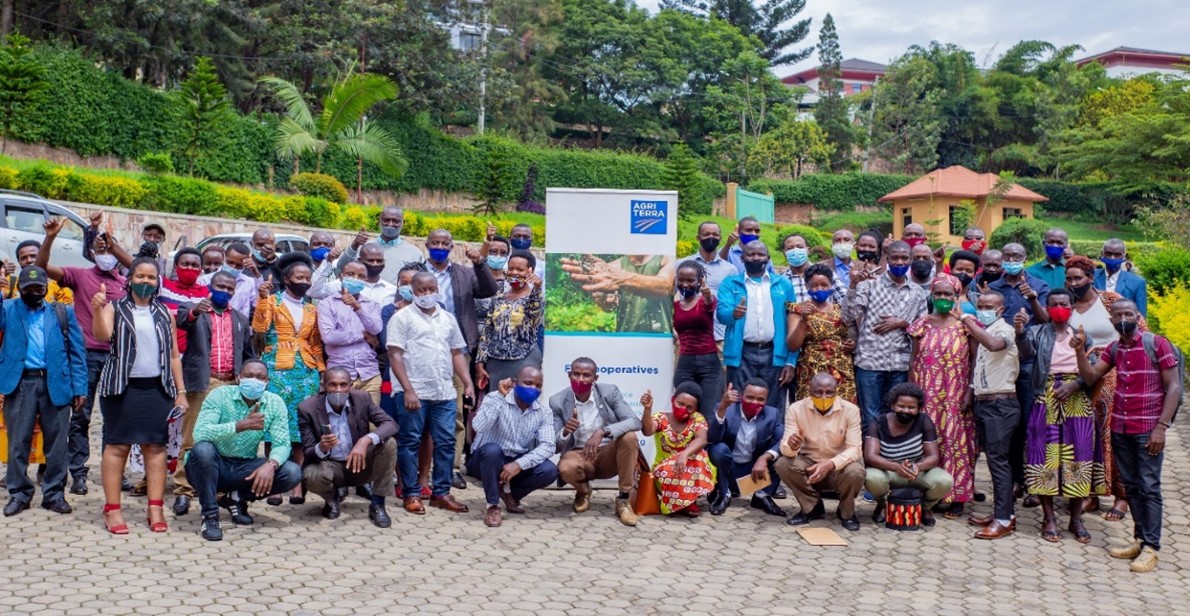News

The women of CHAURU
The participation rate of women in many cooperatives in Tanzania is very low. Female participants are given very little chance in cooperative development and leadership. This is due to African culture.
Agriterra Tanzania has provided training to women of a cooperative of Ruvu Irrigation Farmers called CHAURU. CHAURU is a Tanzanian client of Agriterra since 2018. The aim of the training is the capacity building of CHAURU, so they will bring in other projects besides rice farming to increase their income and fulfill their responsibilities.
Currently in CHAURU there are three groups of women engaged in small business and agricultural activities which are very successful. These three are Faraja Mbogamboga Group, CHAURU Women Group and Nyuki Group.

Youth action in climate
Written by Emmanuel Kibet, business advisor Kenya
“Climate change is real. It is happening right now; it is the most urgent threat facing our entire species, and we need to work collectively together and stop procrastinating.”
Leonardo Di Caprio, actor & environmentalist
In one of our monthly country CRAFT team meetings in September, we floated an idea to blend the Agriterra Youth-Kick off workshop with the climate workshop from SNV to bring out a blended product addressing the role of youths in combating climate change at the cooperatives level.

Farm succession planning in Rwanda
Written by Jean Marie Ntakirutimana, business advisor Rwanda
Farm succession is defined as a process occurring over time during which a family plans for the transfer of knowledge, skills, labour, management, control and ownership of the farm business between the founder (retiring) generation and the successor (next) generation.
Read more
Focus on confidence building
Member commitment is one of the main focus points in the SDGP maize project in Rwanda. Through cooperative trainings, advisory and working on good agricultural practices, technical and management knowledge has been improved at 15 maize cooperatives. A total of 257 farmers were directly trained in Farmer Field Schools and an additional 106 trainees received management trainings.
Read more
Cooperation between cooperatives for financial resource mobilisation
It is a pleasure to share with you an experience of collaboration between cooperatives from Burkina Faso. Through an analysis of the value chain, with the ambition to strengthen its position and to offer the best services to its members, UCRB Faso Djigui, one of our rice cooperatives in the Kou plain in Bama, Burkina Faso, has decided to vertically integrate the value chain by processing and selling rice. In order to achieve this, the goal is to set up a rice processing factory.
Read more
Agriterra bids farewell to its founder and Director Kees Blokland
After almost 25 years, Agriterra is bidding farewell to its founder Kees Blokland who is retiring. On the afternoon of Thursday 7 October, a farewell reception for staff and invitees will be held in Musis in Arnhem, the place where the festive launch of Agriterra took place in 1998 and to which at least forty agricultural organisations were invited at the time.
Read more
Harmonisation of potato extension materials in Rwanda
In Rwanda, various parties have been providing extension services to potato farmers especially in the Northern and Western provinces of the country, each with their own approach in a non-cooperative way. Most of these extension services are publicly funded, which means that they are funded by NGO’s or governments rather than by farmers. Even though pluralism within extension was considered healthy, there were some issues as presented by Agriterra Rwanda through its intern Sjoerd van Vilsteren (from Wageningen University) during his internship in Rwanda.
Read more
